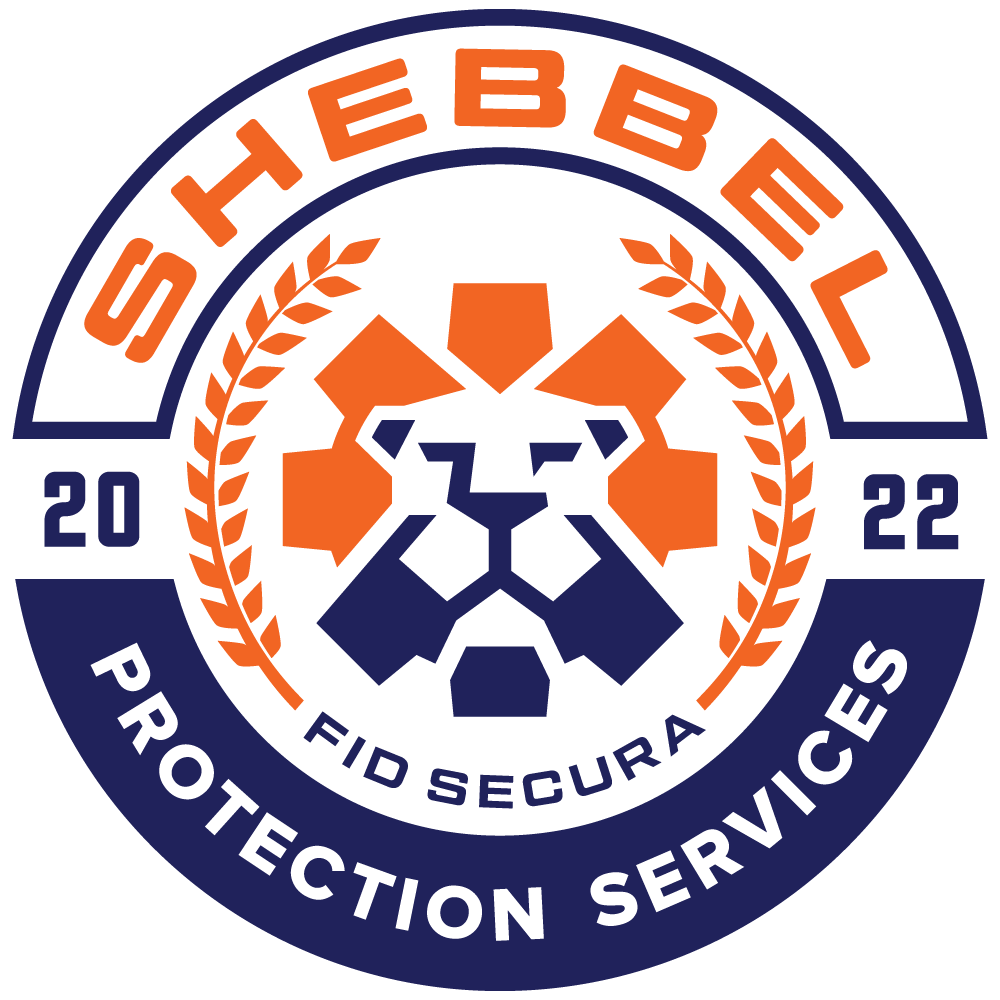Business security isn’t just a checkbox—it’s a critical component of success. From the gleaming towers of downtown Calgary to the sprawling industrial parks of Edmonton, every business faces unique security challenges. This guide will walk you through the essentials of security audits, tailored specifically for Alberta’s two largest cities, ensuring your business stays protected in the heart of the prairies.
Understanding Security Audits in the Alberta Context
A security audit is your business’s comprehensive health check-up. It’s a thorough, systematic evaluation of your security measures, designed to identify vulnerabilities before they can be exploited. In Edmonton and Calgary’s diverse business environment, a security audit covers a wide range of areas.
Physical security assessment is crucial, especially in Edmonton’s industrial areas or Calgary’s busy downtown core. This involves evaluating everything from locks and alarms to surveillance systems and physical barriers. Cybersecurity review is equally important, particularly for tech startups in Edmonton’s Innovation Corridor or financial services firms in Calgary’s business district.
Don’t forget about employee protocols—assessing how well your staff understand and implement security measures can be eye-opening. Emergency response planning is crucial in both cities, given Alberta’s potential for extreme weather events. Lastly, ensure you’re complying with local regulations and industry standards specific to Edmonton and Calgary.
When conducting a security audit in these cities, consider the unique local factors. Both experience extreme temperature fluctuations, which can affect security equipment. Edmonton’s winter temperatures can plummet to -40°C, requiring cold-weather resilient systems. Calgary’s famous chinooks bring rapid temperature changes, demanding adaptable security measures.
Economic factors play a role too. Calgary’s economy, heavily influenced by the oil and gas sector, can experience rapid fluctuations, affecting crime rates and security risks. Edmonton’s more diversified economy presents a different set of challenges. The urban layout of each city—Calgary’s sprawling suburban office parks versus Edmonton’s more concentrated downtown core—necessitates different security approaches.
Who Needs a Security Audit in Edmonton and Calgary?
While every business can benefit from regular security audits, certain sectors in Edmonton and Calgary have particularly pressing needs. The retail sector, from high-end boutiques in West Edmonton Mall to shops along Stephen Avenue in Calgary, faces constant theft risks. Energy and natural resources companies, with headquarters in downtown Calgary and service companies in Edmonton’s industrial zones, deal with sensitive information and valuable equipment.
The booming technology and innovation sector, including startups in Edmonton’s Innovation Corridor and established tech firms in Calgary’s suburban office parks, requires robust cybersecurity measures. Healthcare and life sciences, from hospitals to research facilities near the University of Alberta, handle sensitive patient data and valuable medical equipment.
Manufacturing and industry, particularly in Edmonton’s Yellowhead Corridor, need stringent physical security. The hospitality and tourism sector, including hotels in both downtowns and restaurants in entertainment districts like Whyte Avenue or 17th Avenue, must ensure guest safety while maintaining a welcoming atmosphere.
Financial services, with banks and investment firms concentrated in Calgary’s financial district, require multi-layered security approaches. Educational institutions, from the sprawling campuses of the University of Alberta and University of Calgary to numerous schools throughout both cities, are responsible for the safety of thousands of students and staff daily.
Conducting a Comprehensive Security Audit
Start your security audit with a thorough risk assessment. In Edmonton, consider the impact of long, dark winter nights on outdoor security and assess risks associated with proximity to industrial areas or along River Valley. For Calgary businesses, factor in potential flood risks, especially near the Bow or Elbow rivers, and consider crowd-related risks during events like the Calgary Stampede.
When reviewing physical security, pay special attention to entry points. In older buildings, common in areas like Edmonton’s Old Strathcona or Calgary’s Inglewood, window and door frame integrity is crucial. For businesses in high-rises, evaluate the security of emergency exits and rooftop access. Don’t forget about perimeter security—assess fencing, gates, and natural boundaries, and evaluate lighting, especially in industrial areas or dimly lit urban pockets.
Cybersecurity is increasingly crucial. Review network security, including firewalls and Wi-Fi protection, particularly important for businesses in dense urban areas. Assess data protection measures, including encryption practices and backup systems. Don’t overlook employee cybersecurity practices—evaluate password policies, multi-factor authentication implementation, and training on phishing and social engineering threats.
Your employees are both your first line of defence and a potential vulnerability. Review access control systems, including badge systems and visitor policies. In shared office spaces, common in both cities’ downtown areas, ensure clear security responsibilities. Evaluate the effectiveness of current security training programs and consider implementing regular security briefings or newsletters.
Emergency response planning is critical in both Edmonton and Calgary. Ensure plans account for severe winter storms, common in both cities. Calgary businesses should have robust flood response plans, especially in flood-prone areas. In Edmonton, consider risks associated with tornadoes, which, while rare, do occur in the region. Review fire prevention measures, evacuation procedures, and active threat response protocols.
Security Audit Checklist
Perimeter Security: Fencing, gates, lighting
Entry Points: Doors, windows, loading docks
Surveillance: Cameras, monitoring systems
Alarm Systems: Intrusion detection, fire alarms
Access Control: Key cards, biometrics
Cybersecurity: Firewalls, data encryption, secure Wi-Fi
Employee Training: Security protocols, emergency procedures
Local Compliance: Check adherence to Edmonton and Calgary bylaws
Implementing Audit Findings: A Strategic Approach for Alberta Businesses
After completing your security audit, it’s time to act on the findings. Prioritize vulnerabilities, addressing critical issues immediately while creating a timeline for less urgent matters. When allocating budget, consider the cyclical nature of Alberta’s economy. Look for cost-effective solutions that provide maximum security benefit and consider phased implementation for larger upgrades.
Engage with local security firms who understand Edmonton and Calgary’s unique challenges. Consider joining local business improvement areas (BIAs) for collective security initiatives. Involve your employees in implementing new security measures and provide comprehensive training on new systems or procedures.
Look for ways to integrate physical and cybersecurity measures. Consider smart security systems that can adapt to changing threat landscapes, ensuring they’re compatible with existing infrastructure. Schedule regular follow-up audits to assess the effectiveness of implemented measures and be prepared to adjust your strategy as your business grows or changes.
Leveraging Local Resources for Enhanced Security
Both Edmonton and Calgary offer valuable resources to support your security efforts. The Edmonton Police Service Crime Prevention Unit offers free security assessments for businesses and provides crime prevention through environmental design (CPTED) consultations. In Calgary, Community Resource Officers offer security advice tailored to specific neighbourhoods and provide updates on local crime trends.
The Alberta Association of Security Services offers networking opportunities with security professionals across the province and provides updates on industry standards. Both Edmonton and Calgary Chambers of Commerce offer security resources for members and host seminars on various aspects of business security. Many Business Improvement Areas (BIAs) in both cities have collective security initiatives and can provide valuable local insights.
Leveraging Drone Technology for Comprehensive Security Audits
In the ever-evolving landscape of security technology, drones have emerged as a game-changing tool for conducting thorough security audits, particularly beneficial for commercial businesses in Edmonton and Calgary with large or complex properties.
The Drone Advantage in Security Audits
Drones offer a unique bird’s-eye view of your property, providing perspectives that are difficult or impossible to achieve through traditional ground-based assessments. For businesses sprawled across Edmonton’s industrial parks or nestled in Calgary’s downtown core, drones can offer invaluable insights into overall security posture.
In Edmonton, where harsh winters can make physical inspections challenging, drones can safely and efficiently survey rooftops, fencing, and other outdoor infrastructure. Calgary businesses near the Bow or Elbow rivers can use drones to assess flood risks and plan mitigation strategies from a new angle.
Key Applications of Drones in Security Audits
- Perimeter Assessments: Drones can quickly survey the entire perimeter of a property, identifying weak points in fencing, unusual patterns in landscaping, or unauthorized access points that might be missed from ground level.
- Roof Inspections: For multi-story buildings in downtown Edmonton or Calgary, drones can safely inspect rooftops, HVAC systems, and other potential entry points without risking employee safety.
- Thermal Imaging: Equipped with thermal cameras, drones can detect heat signatures that might indicate unauthorized presence or potential fire hazards, particularly useful for large warehouses or industrial facilities.
- Surveillance System Evaluation: Drones can help assess the coverage of existing surveillance cameras, identifying blind spots or areas needing additional monitoring.
- Emergency Response Planning: By providing a comprehensive view of the property, drones can assist in planning evacuation routes and identifying safe assembly points.
Regulatory Considerations in Alberta
While drones offer significant benefits, it’s crucial to operate within legal frameworks. In Canada, drone operations are regulated by Transport Canada. When using drones for security audits in Edmonton or Calgary:
- Ensure your drone is registered with Transport Canada if it weighs between 250g and 25kg.
- Operators must have a drone pilot certificate – basic or advanced, depending on the nature of the operation.
- Be aware of no-fly zones, such as areas near airports. This is particularly important in Calgary, with its international airport (YCC) close to the city.
- Respect privacy laws. Avoid capturing images of individuals without consent.
Integrating Drone Technology into Your Security Audit
To effectively incorporate drones into your security audit in Edmonton or Calgary:
- Partner with certified drone operators familiar with local regulations and weather conditions.
- Plan your drone survey to coincide with other aspects of your security audit for a comprehensive assessment.
- Use the data gathered by drones to create detailed maps and 3D models of your property, enhancing your overall security planning.
- Consider seasonal drone surveys to account for changes in vegetation, snow cover, or other environmental factors that could impact security.
By incorporating drone technology into your security audits, you’re not just enhancing the thoroughness of your assessment; you’re positioning your Edmonton or Calgary business at the forefront of modern security practices. This innovative approach demonstrates a commitment to comprehensive security that goes above and beyond traditional methods, quite literally.
Security Audits Conclusion
In the vibrant, ever-changing landscapes of Edmonton and Calgary, a robust security audit is more than just a precautionary measure—it’s a crucial component of business success. By thoroughly assessing your security needs, implementing strategic improvements, and staying informed about local security trends, you’re not just protecting your assets; you’re contributing to the safety and prosperity of Alberta’s business community.
Remember, in cities as dynamic as Edmonton and Calgary, security is an ongoing process, not a one-time effort. Regular audits, tailored to your specific location, industry, and the evolving urban environment, are key to staying ahead of potential threats.
By taking a proactive, informed approach to security, you’re positioning your business for long-term success in Alberta. You’re creating a safer environment for your employees and customers, building trust with your stakeholders, and demonstrating your commitment to the well-being of your community.
As you move forward with your security audit and improvements, remember that you’re not alone in this endeavour. Tap into the wealth of local security companies available, engage with your business community, and don’t hesitate to seek expert assistance when needed. Together, we can keep Edmonton and Calgary thriving as safe, secure places to do business.
Your commitment to comprehensive security is more than just good business practice—it’s a vital contribution to the resilient, prosperous future of Alberta’s two great cities. So roll up your sleeves, dive into that security audit, and take pride in knowing you’re playing a crucial role in keeping the heart of Alberta secure, one business at a time.





